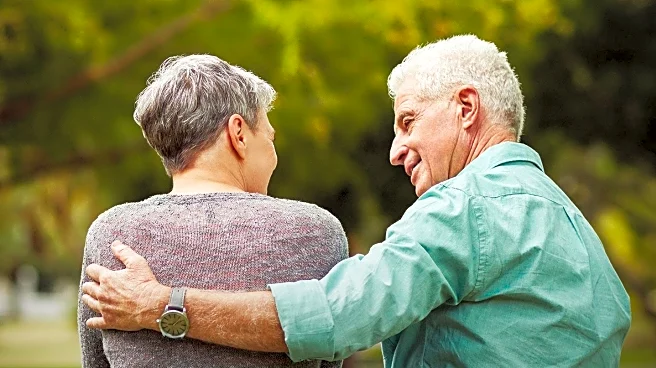What is the story about?
What's Happening?
The fear of dying alone is becoming increasingly common among older adults in the United States, particularly those who live alone. This concern is highlighted by the growing number of older individuals who lack close family ties or have become isolated due to illness or disability. According to recent data, more than 15 million people aged 55 or older do not have a spouse or biological children, and nearly 2 million have no family members at all. This isolation is exacerbated by the fact that between 20 and 25 percent of older adults who do not live in nursing homes are not in regular contact with other people. The issue gained attention during the pandemic when families were often unable to be with their loved ones in hospitals or nursing homes. Despite programs like 'No One Dies Alone' in hospitals, similar services are not widely available for those dying at home.
Why It's Important?
The growing concern about dying alone among older adults has significant implications for healthcare and social services in the U.S. As the population ages, the demand for end-of-life care and support is expected to increase. However, many older adults lack the financial resources to afford assisted living or home-based care, which is primarily funded by Medicaid. Planned cuts to Medicaid under President Trump's tax and spending law could further limit access to these essential services, potentially leading to more older adults dying in hospitals rather than at home. This situation raises ethical questions about the quality of end-of-life care and the societal responsibility to support vulnerable populations.
What's Next?
Healthcare providers and policymakers may need to address the growing issue of social isolation among older adults and the fear of dying alone. This could involve expanding programs that provide companionship and support to those in their final days, as well as advocating for policies that ensure adequate funding for home-based care services. Additionally, there may be a need for increased public awareness and community engagement to support older adults living alone.
Beyond the Headlines
The fear of dying alone touches on broader societal issues, including the importance of community and social connections in maintaining mental and emotional well-being. It also highlights the need for a compassionate approach to end-of-life care that respects the dignity and wishes of individuals. As the population ages, these issues will become increasingly relevant, prompting discussions about how society can better support its aging members.















